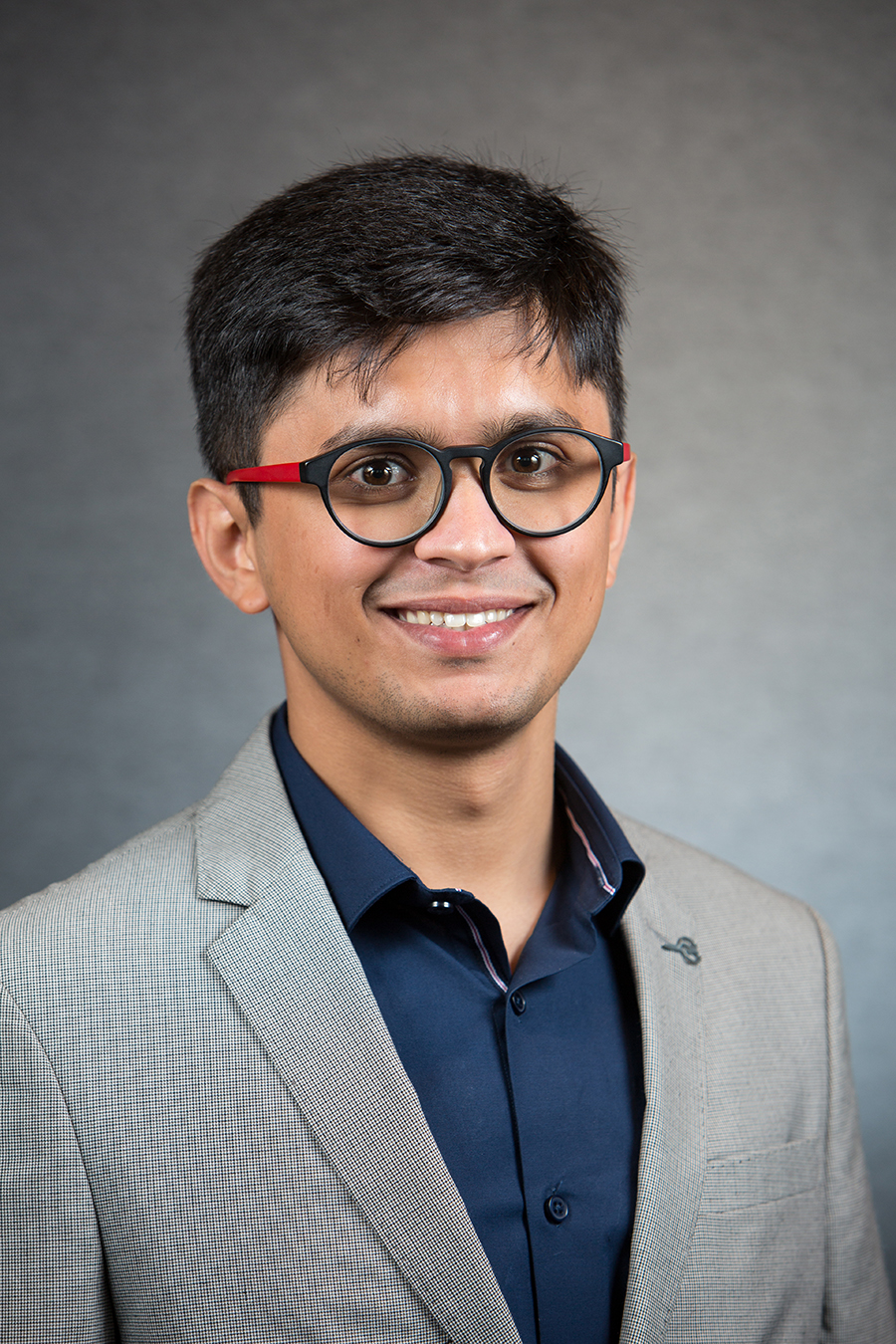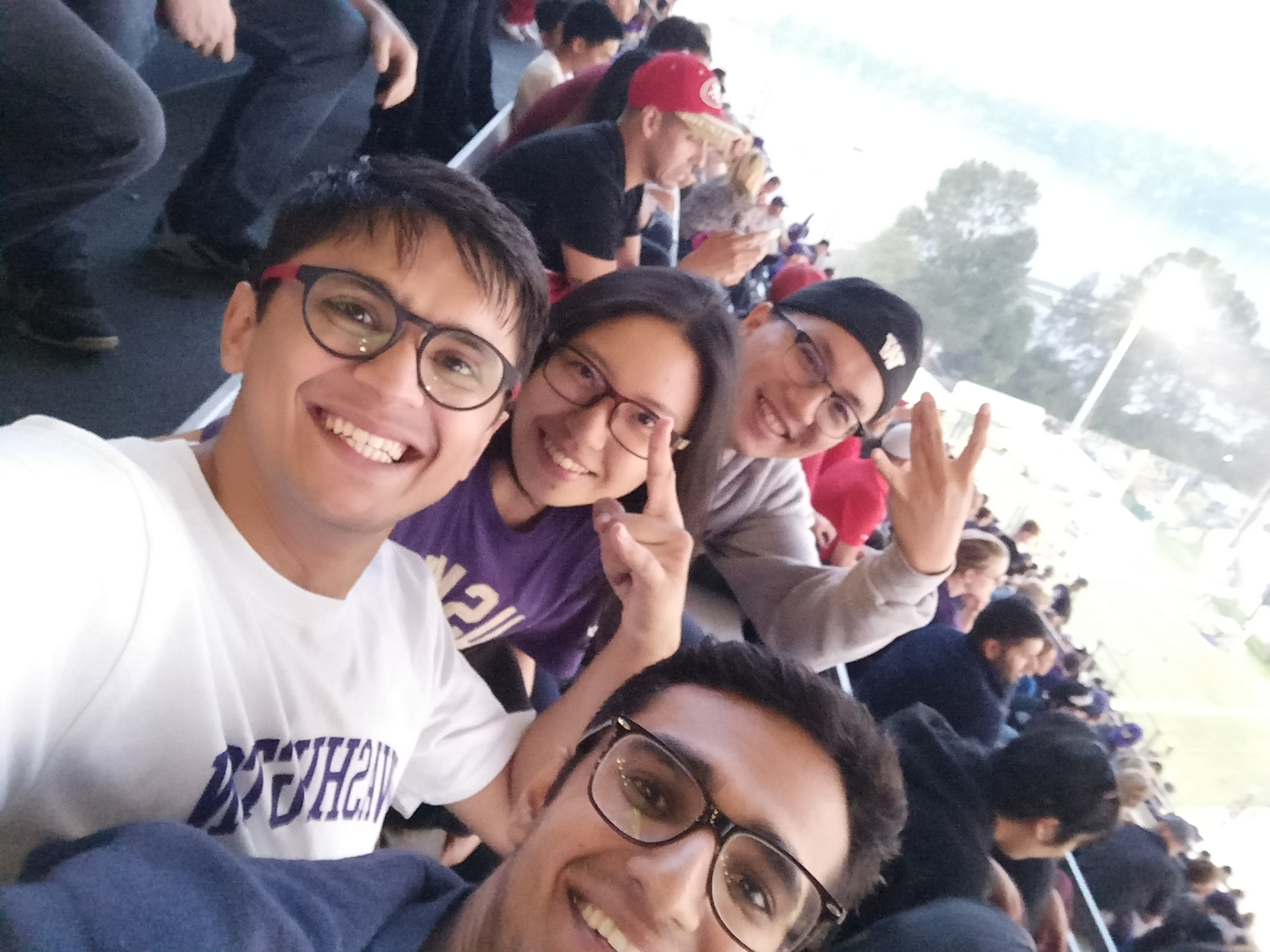11 questions with MSCM student Tejeshwar Singh
We asked current Foster students to tell us why they chose Foster, explain how they balance life with school, and to share advice with potential applicants. Meet Master of Supply Chain Management student Tejeshwar Singh.

MSCM student Tejeshwar Singh
1) Where are you from?
I’m from a city called Bangalore from India.
2) What were you doing before starting the MSCM program?
I worked with Accenture for about 3.5 years before starting the MSCM program. I started of as an Application Development Associate and gradually climbed the ladder to become an Application Development Senior Analyst. We as a team were responsible to support and manage the applications used by one of the largest logistics company to track inventory, orders, etc. I also got the opportunity to learn about Sterling Commerce and how you can alter/modify pipelines according to customer needs to come up with an order flow and efficiently track the orders and inventory.
3) What attracted you to Foster and the MSCM program?
I’m interested in the UW Foster Master of Supply Chain Management for 2 main reasons. Firstly, Foster’s program offers the ideal balance of technical and practical concepts. Having the analytical skills and technical knowledge of SCM means little if you aren’t able to comprehend the big picture and communicate about it. Supply chain professionals are not limited to one narrow field, but oversee an entire cycle from production to consumption. With a critical focus on business and applying theoretical knowledge in practical contexts, UW graduates emerge better equipped to compete in today’s global arena. The second reason I am attracted to this program is because it is so concise. I am a fast learner and love working hands on, so having the course condensed into a 12-month timeline is ideal for me.
4) What skills and/or knowledge are you looking to develop?
The MSCM program is a one year specialty Master’s program with 44 credits. Each quarter is perfectly designed to prepare an individual and also give a solid understanding of the core supply chain topics. I’m looking to improve my analytical skills and techniques to think from a supply chain perspective and how we can implement these in real world scenarios.
5) What kind of connections have you made with your classmates/larger business community while in the program?
While in the program I had the opportunity to attend one of the best Supply chain conference hosted by CSCMP. I felt this is a great platform for students to network with supply chain practitioners and also meet with executive-level individuals whom I would have never gotten a chance to talk to had I not attended this conference. I believe it is highly important for students to attended supply chain conferences so that they can get a better picture of what supply chain professionals do and what is expected from us. Having access to talk to C-level executives, VP’s, etc. will not only give you an opportunity to improve your communication skills but also will allow you to get a deeper understanding of what it takes to be in the supply chain industry and how you can be successful.
6) What do you think about the supply chain field in Seattle?
There are a lot of supply chain opportunities in Seattle. Big companies like Amazon, Microsoft, PACCAR, Boeing and Starbucks headquartered in Washington. Seattle has a fourth largest container gateway in North America – Northwest Seaport Alliance. There are a number of job opportunities in these companies and depending on your skills and interest, one can choose their career path.
7) What kind of impact would you like to have on the supply chain field?
This curriculum is relevant to my special focus in combating carbon emissions. The coursework will allow me to explore various Strategic Sourcing and Procurement techniques, forecasting models and many more. These topics all connect with my goal of integrating the carbon emissions concern with Operational Decision Making.
8) How do you balance school with other life priorities?
There is a saying – “If you fail to plan, you’re planning to fail” – Benjamin Franklin. Planning is very important and with planning you can make time for other things. If you don’t plan ahead, you’ll probably find it hard to maintain a balance between school and other life priorities.
9) What do you like to do for fun?
Playing outdoor games, gym, hiking, watching soccer and of course watching the Huskies and Seahawks play!

Tejeshwar attending a Husky game
10) What’s been your favorite part of the program so far?
Happy hours and I’m sure playing some supply chain games (going to play this quarter) which is a part of my course.
11) What advice would you give to someone who’s thinking about applying to Foster’s MSCM program?
The course is perfectly designed to equip an individual with the required skills. Although it is a one year program, the courses offered are good. You will get to learn sourcing, procurement, forecasting, operations management, six sigma, big data and ERP. I feel this is a perfect mix of supply chain and technical concepts which is highly important from an employer’s perspective.
Lastly, I would like to say, the faculty is AWESOME and I’m sure you will never get bored here!
Learn more about Foster’s Master of Supply Chain Management program
This post is part of a series where we ask current students to answer 11 questions about their experience at Foster. Stay tuned for more interviews in the coming weeks!
